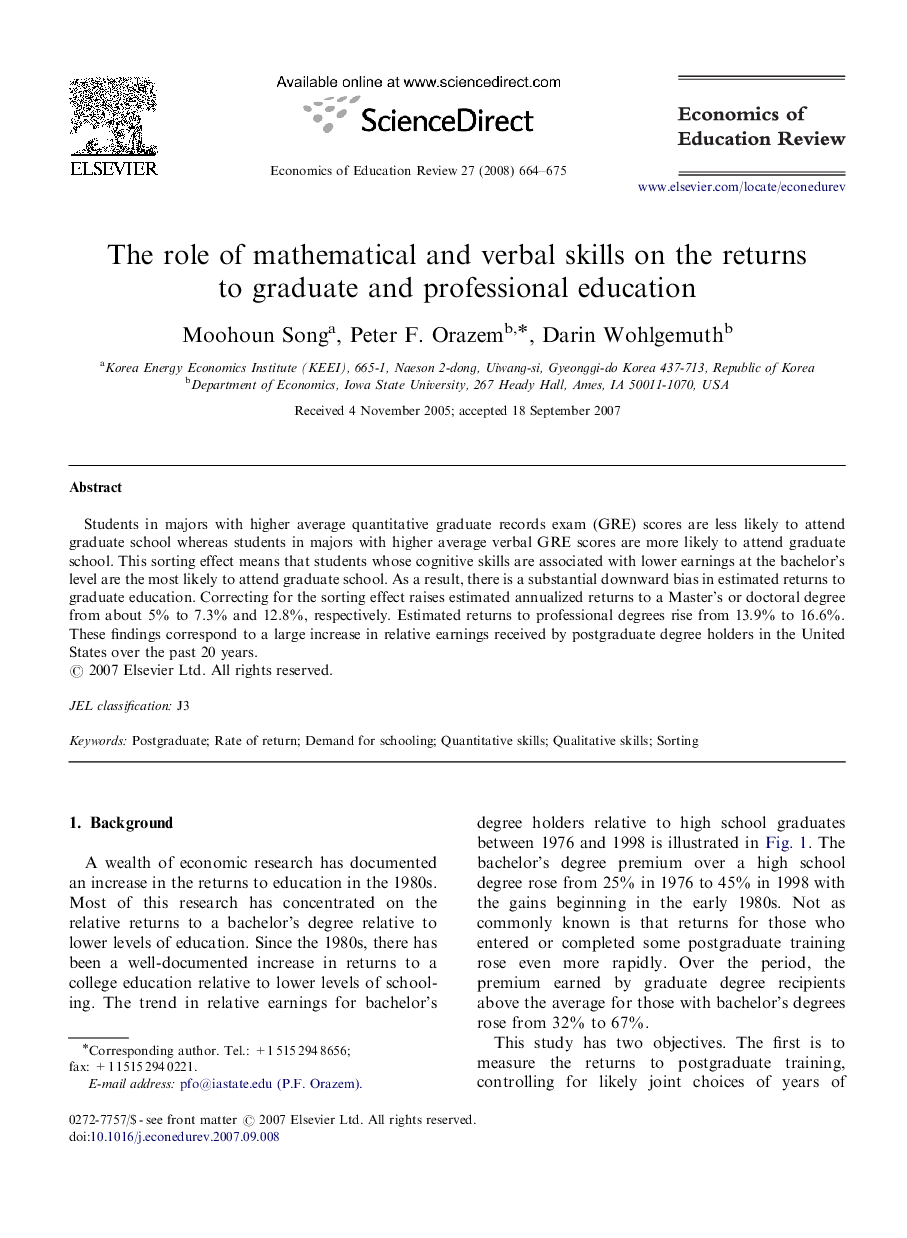| Article ID | Journal | Published Year | Pages | File Type |
|---|---|---|---|---|
| 354939 | Economics of Education Review | 2008 | 12 Pages |
Students in majors with higher average quantitative graduate records exam (GRE) scores are less likely to attend graduate school whereas students in majors with higher average verbal GRE scores are more likely to attend graduate school. This sorting effect means that students whose cognitive skills are associated with lower earnings at the bachelor's level are the most likely to attend graduate school. As a result, there is a substantial downward bias in estimated returns to graduate education. Correcting for the sorting effect raises estimated annualized returns to a Master's or doctoral degree from about 5% to 7.3% and 12.8%, respectively. Estimated returns to professional degrees rise from 13.9% to 16.6%. These findings correspond to a large increase in relative earnings received by postgraduate degree holders in the United States over the past 20 years.
